Journal Articles
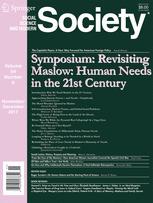
Abulof, Uriel (2017). Why We Need Maslow in the Twenty-First Century. Society, 54 (6): 508–509.
What is human nature? Are there innate, hierarchical, human needs and motivations? Have they transformed? What are the social-political implications? Over seventy years ago Abraham Maslow submitted “A Theory of Human Motivation” (1943). His subsequent pyramid-shape hierarchy of needs captured the world’s imagination by suggesting that humans are driven by innate needs for survival, safety, love and belonging, esteem, and self-realization, in that order. Nearly all academic works eventually fall into oblivion, some instantaneously. The fate of Maslow’s hierarchy of human needs is different, its continued resonance a most telling evidence of its significance: it explains human nature as something that most humans immediately recognize in themselves and others.

Abulof, Uriel (2017). Be Yourself! How Am I Not myself? Society, 54 (6): 530-532.
The tension between godlike and doglike qualities runs through Abraham Maslow’s hierarchy of human needs. On the one hand, Maslow stresses that “motivation theory must be anthropocentric rather than animalcentric.” On the other hand, his theory erects a largely animalistic pyramid, crowned with a human apex: “Man’s higher nature rests upon man’s lower nature, needing it as a foundation and collapsing without this foundation… Our godlike qualities rest upon and need our animal qualities." Maslow’s hierarchy of human needs is mostly animalistic; only self-actualization is uniquely human. Yet even this token of “human exceptionalism” is hampered by subscribing to essentialist, rather than existentialist, authenticity. If the former is just about recovering an innate, latent, core, it robs humans of their freedom to (re)create who they are. If we dare to choose, we cannot but be ourselves.
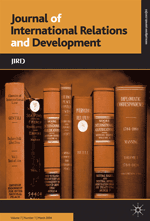
Abulof, Uriel (2017). “Can’t Buy Me Legitimacy”: The Elusive and Illusive Stability of Mideast Rentier Regimes. Journal of International Relations and Development 20 (1): 55–79.
This paper qualitatively revisits the thesis that rentier regimes can draw on their non-tax revenues to buy political legitimacy and stability. Exploring the material/moral interplay in Mideast rentier politics, I show why and how rents may provide for provisional, but not sustainable, stability for authoritarian rentier regimes. I propose distinguishing between negative and positive political legitimacy, the former being about ‘what is legitimate’ (liberty vs. security), and the latter about ‘who is the legitimator’ (divine/hereditary right vs. popular sovereignty). Sustainable stability is predicated on having both legitimacies. Rentier regimes, however, often draw exclusively on negative political legitimacy. These regimes can use rents to buy time—through coercion and expediency—contriving an imagery of a lusty Leviathan. But due to the diversity of rents and the temporal shifts in their revenues, this social contract is materially contingent and morally frail—rendering authoritarian rentier regimes, not least in the Middle East, more mortal than they, and many observers, are ready to admit.
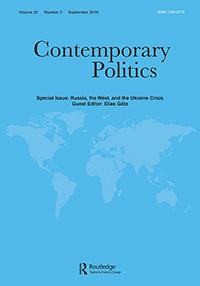
Abulof, Uriel and Markus Kornprobst (2017). The Politics of Public Justification. Contemporary Politics, 23(1): 1-18.
This paper, an introduction to a special issue, sketches a broad frame for studying public justification. Addressing the relevance of studying this phenomenon, we contend that justificatory processes are very much at the core today’s politics. Defining the concept inclusively, we highlight the relevance of communicative agency and, at the same time, the salience of communicative contexts that enable this agency. Casting our net widely, we show how public justification is related to other, more thoroughly studied concepts, such as legitimacy, authority and power. Encouraging students of public justification to add to our understanding of justificatory processes, we highlight multiple fruitful methodological avenues for studying the concept.

Abulof, Uriel (2017). Conscientious Politics and Israel’s Moral Dilemmas. Contemporary Politics, 23(1): 34-52.
This paper introduces ‘conscientious politics’, discusses their features and shows their resonance in the case of Israel. I define conscientious politics as politics informed by moral deliberations about legitimacy, and locate them in the larger matrix of conscience. In the balance between passion and persuasion, conscientious politics provide time and invite venues for deliberation on the social contract, challenging rulers’ convenience and society’s conventions. While the individual’s freedom of conscience draws mainly on positive liberty (from within), conscientious politics also requires emancipation from without. However, conscientious politics are not necessarily harmonious or liberal, nor does liberalism necessarily entail free conscience. Conscientious politics are often ‘hidden in plain sight’, and the normative task of bringing them to light depends on revealing the moral dilemmas that underpin actual politics. I unearth such dilemmas with regard to Israel’s 2011 social justice movement, the subsequent prisoner exchange and Israel’s relations with the Palestinians.

Abulof, Uriel and Markus Kornprobst (2017). Unpacking Public Justification. Contemporary Politics, 23(1): 126-140.
This brief response to Greenfeld’s caveat submits that public justification is not omnipresent, but can extend, and has extended, beyond the modern, liberal West. Subscribing to a thin, rather than thick, conceptualization of public justification, we chart the contested contours of public justification, and urge scholars of this emergent field to clarify their own take before advancing pertinent theories and case studies. We briefly expound the nature and historical roots of both ‘justification’ and ‘the public’, suggesting that their amalgam into public justification transcends the modern, liberal West.
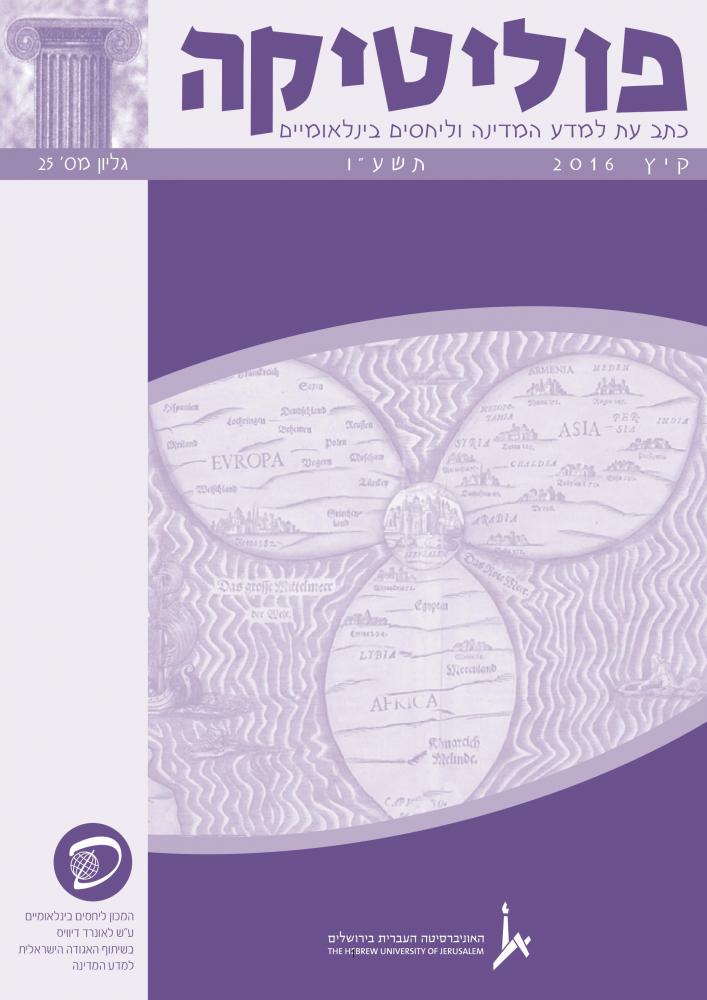
Uriel Abulof and Ogen S. Goldman (2016). Intrastate Violence in the Middle East: On Democracy, Democratization and Nationalism [Hebrew]. PoLitics: The Israeli Journal of Political Science and International Relations 26: 137-165.
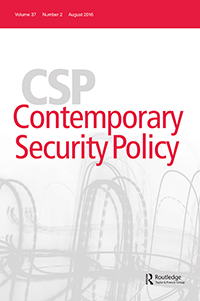
Ogen S. Goldman and Uriel Abulof (2016). Democracy for the rescue—of dictators? The role of regime type in civil war interventions. Contemporary Security Policy 37(3): 341-368.
Intrastate conflicts, long eclipsing interstate conflicts, are often internationalized. This paper examines internationalized intrastate conflicts through the types of both the intervening and the embattled regimes. Do democracies, more or less than autocracies, support autocratic governments in their fights against rebels? This paper tests three hypotheses: (1) democracies support autocrats fighting rebels less than autocracies do. (2) Democracies support democratic governments fighting against rebels more than autocracies do. (3) The more democratic two states are, the higher the probability one would support the other’s fight against rebels. Covering all documented external support in intrastate wars (1975–2000), our findings support hypothesis one and two only partly and confirm hypothesis three. However, comparing the two major accounts of the Democratic Peace theory (DPT)—the normative and the structural—our findings corroborate only the former robustly. The paper thus helps enriching the insights of the DPT beyond interstate conflicts.

Abulof, Uriel (2016). We the Peoples? The Strange Demise of Self-Determination. European Journal of International Relations, 22 (3): 536-565 .
The self-determination of peoples is a fundamental legitimating principle of the international system; it justifies the system’s very existence. Through a vast diachronic corpus and pertinent datasets, this paper nevertheless reveals a puzzling decline in the public discourse on, and practice of, self-determination over the last fifty years. I identify and assess four structural explanations for this decline: “lexical change” (replacing self-determination with alternative terms), “silent hegemony” (taking the norm for granted), “reactive rhetoric” (echoing conflicts and new state formation post-hoc), and “mission accomplished” (rectifying the incongruence between national boundaries and state borders). Complementing these structural causes with agential reasons, I further suggest that powerful state actors and persuasive academics have sought to “tame” self-determination as both principle and practice: retaining the term but altering its meaning from a source of threat into a resource for containing it. Self-determination, however, has not been eliminated, and taming it may yet prove a Pyrrhic victory.
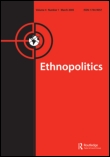
Abulof, Uriel (2016). Mirage or Vision: Binationalism in Theory and Practice. Ethnopolitics, 15 (4): 422-437.
What is binationalism, what sets it apart, and can it help resolve the Israeli-Palestinian conflict? This paper crystallizes the concept of binationalism and shows how it challenges prevalent principles and practices. I distinguish binationalism from dual citizenship and civic-ethnic amalgams, and analyze its normative narrative. Typically, the nation proclaims “this land belongs to us” and “we belong to the land.” With binationalism, two ethnic nations tell each other “we belong together”: the individual belongs to one nation—and to one state, but the two nations “belong together” in a single state. This model defies the exclusivity of the nation-state model. I discuss the meaning of such potential transformation in the Israeli-Palestinian conflict, and the extent to which binationalism can aid its resolution. I conclude that binationalism has largely been a mirage but may become a vision for a future, with ramifications for, and beyond, the Israeli-Palestinian conflict.
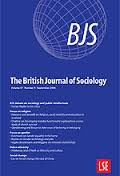
Abulof, Uriel (2016). Public Political Thought: Bridging the Sociological-Philosophical Divide in the Study of Legitimacy. British Journal of Sociology 67 (2): 371-391.
The study of political legitimacy is divided between prescriptive and descriptive approaches. Political philosophy regards legitimacy as principled justification, sociology regards legitimacy as public support. However, all people can, and occasionally do engage in morally reasoning their political life. This paper thus submits that in studying socio-political legitimation—the legitimacy-making process—the philosophical ought and the sociological is can be bridged. I call this construct “public political thought” (PPT), signifying the public’s principled moral reasoning of politics, which need not be democratic or liberal. The paper lays PPT’s foundations and identifies its “builders” and “building blocks.” I propose that the edifice of PPT is built by moral agents constructing and construing socio-moral order (nomization). PPT’s building blocks are justificatory common beliefs (doxa) and the deliberative language of legitimation. I illustrate the merits of this groundwork through two empirical puzzles: the end of apartheid and the emergence of Québécois identity.

Abulof, Uriel (2015). “The People Want(s) to Bring Down the Regime”: Rethinking Nationalism and Legitimacy in the Arab World. Nations and Nationalism 21 (4): 658–680.
When and what is the nation, and nationalism, and when have both emerged in the Arab world? I suggest new ways of approaching these questions, and new answers. Revisiting the “dating debate,” I propose distinguishing between negative nationalism (rejecting foreign rule) and positive nationalism (holding “the people” as the source of legitimacy), the latter distinctively modern, the former not. Empirically, I examine these theoretical propositions in light of the Arab Spring’s dual revolution, vividly captured by its popular slogan: “The people want(s) to bring down the regime.” I submit that the manifest revolution of toppling regimes pales in comparison to the ideational revolution of engendering positive nationalism. While the former revolution has been a huge surprise, the history of the Arab world abounds in precedents; conversely, Arab societies’ subscription to “the people” as the prime political legitimator—asserting their own inalienable political right to tell right from wrong—is novel. In that sense, (positive) nationalism is the revolution of the Arab Spring, challenging both authorities and polities.

Abulof, Uriel (2015). The Confused Compass: From Self-Determination to State-Determination. Ethnopolitics 14 (5): 488-497.
Self-determination, a prime justificatory principle of the international society, has become a confused, and confusing, compass. At the heart of this confusion, I argue, lies the tacit submersion of self-determination in state-determination. In principle, self-determination entails the “moral double helix” of duality (personal right to align with a people, and the people’s right to determine their politics) and mutuality (the right is as much the other’s as the self’s). In practice, state actors have labored to tame self-determination: to control and contain this perilous principle by yielding the will of “the people” to the interests of powerful states, which have repeatedly impaired its moral DNA.

Abulof, Uriel with Wolfgang Danspeckgruber (2015). In Search of a Common Ground Between Self-determination and Grand Strategy. Ethnopolitics 14(5): 555-558.
Our world today is fraught with confusion about the principles and practices of politics—lacking both a moral common ground and a coherent grand strategy to meet the challenges of our time. Self-determination has been then, as now, an integral part of the story, though often hidden in plain sight. As the contributions to this special issue reveal, however, this seeming “common ground” has become the contested territory of grand (and petty) strategies throughout the century. From its inception, self-determination has never been consensual, quickly becoming a double-edged principle. If its ideal has occasionally been a sanguine recourse for people to become “a people” and then an independence-seeking “nation,” it has been at least as often a manipulative resource in the hands of politicians.
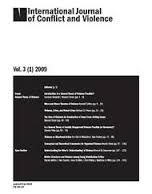
Abulof, Uriel and Ogen Goldman (2015). The Domestic Democratic Peace in the Middle East. International Journal of Conflict and Violence 9 (5). [Winner of the Yaacov Bar-Siman-Tov Prize for best article, Israel Political Science Association (ISPSA)]
The democratic peace theory has two complementary variants regarding intrastate conflicts: the “democratic civil peace” thesis sees democratic regimes as pacifying internal tensions; the “anocratic war” thesis submits that due to nationalism, democratizing regimes breed internal violence. This paper statistically tests the two propositions in the context of the contemporary Middle East and North Africa (MENA). We show that a MENA democracy makes a country more prone to both the onset and incidence of civil war, even if democracy is controlled for, and that the more democratic a MENA state is, the more likely it is to experience violent intrastate strife. Interestingly, anocracies do not seem to be predisposed to civil war, either worldwide or in MENA. Looking for causality beyond correlation, we suggest that “democratizing nationalism” might be a long-term prerequisite, not just an immediate hindrance, to peace and democracy. We also advise complementing current research on intrastate and interstate clashes with the study of intercommunal conflicts and the democratic features of non-state polities.
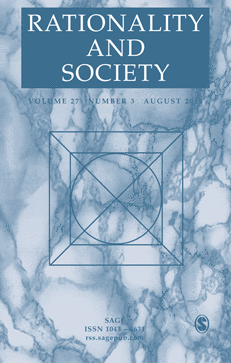
Abulof, Uriel (2015). The Malpractice of Rationality in International Relations. Rationality and Society 27(3): 358–384.
This article investigates the misuse of “rationality” in academic and political discourses, focusing on the Iranian nuclear project. The concept of rationality is ubiquitous; scholars, pundits, and practitioners turn to it, sometimes unwittingly, to describe, explain, and predict. When concerning concrete security and foreign policies, however, this praxis borders on malpractice: rationality-based descriptions are largely either false or unfalsifiable; many observers fail to explicate the meaning of “rationality” they employ; and the concept is frequently used politically to distinguish between “us and them.” Empirically, I show that rationality has played an opaque and excessive role in the Western accounts of Iranian nuclear policy. Both “optimists” and “pessimists” have frequently, but faultily, turned to rationality/irrationality to explain Iran’s moderate/belligerent nuclear policy and its susceptibility/resistance to nuclear deterrence. The malpractice of “rationality” in discussing such matters has become a bad habit, which is best uprooted.
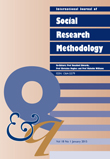
Abulof, Uriel (2015). Normative Concepts Analysis: Unpacking the Language of Legitimation. International Journal of Social Research Methodology 18 (1):73-89.
How should we study the language of political legitimation? Incipient scholarship increasingly seeks to bridge the conceptual schism between the sociological is and the philosophical ought in the study of legitimacy, looking at public legitimating discourses to uncover the actual social attitudes toward prescriptive principles. And while this research agenda has recently gained traction, its methodology remains opaque. This paper suggests that normative concepts, central to the argumentations that hold common basic beliefs and discourse together, can allow us to tap into the language of legitimation. Normative concepts can be traced via mixed methods research, incorporating the quantitative method of corpus linguistics and the qualitative method of discourse-tracing – two techniques that mutually enrich and complement each other. By illuminating changes in the sort, scale, and scope of normative concepts, this mode of inquiry can explicate the language of legitimation and advance our understanding of sociopolitical legitimacy.

Abulof, Uriel (2014). Deep Securitization and Israel's “Demographic Demon”. International Political Sociology 8 (4):396-415.
Securitization theory's core contention—the social construction of security as a “speech–act”—is perceptive and productive, yet insufficiently attentive to societies engulfed in profound existential uncertainty about their own survival. Such societies are immersed in what I call “deep securitization,” whereby widespread public discourses explicitly frame threats as probable, protracted, and endangering the very existence of the nation/state. Under deep securitization, to politicize is to securitize, sectors intensely intertwine, political legitimacy's object is the polity/identity itself, and securitization steps are typically nonbinary and nonlinear. Empirically, if some securitizations are deeper than others, Israel's is one of the deepest. In this study, I examine this exceptionally apt, though little-examined, case for securitization theory. Israeli public discourse abounds with “existential threats,” invariably depicting the Jewish people and polity as endangered. The article analyzes the securitization of demography and its linkage to geography and democracy in the Israeli-Jewish discourse and praxis.

Abulof, Uriel (2014). The Role of Religion in National Legitimation: Judaism and Zionism’s Elusive Quest for Legitimacy. Journal for the Scientific Study of Religion 53 (3): 515-533.
Why and how do nations turn to religion to justify claims for statehood? This article addresses this question in both theory and practice, showing that religion plays multiple legitimating roles that shift dynamically according to the success they yield for national movements. I posit four legitimating models: (1) nationalism instead of religion (“secular nationalism”), (2) nationalism as a religion (“civil religion”), (3) religion as a resource for nationalism (“auxiliary religion”), and (4) religion as a source of nationalism (“chosen people”). Empirically, I analyze the roles of religion in Zionist efforts to legitimate a Jewish state in Palestine. I argue that Zionism has responded to persistent delegitimation by expanding the role of religion in its political legitimation. The right of self-determination, which stands at the core of the “secular Zionism” legitimation, has given way to leveraging Judaism, which in turn has been eclipsed by constructing a Zionist civil religion and a “chosen people” justification.

Abulof, Uriel (2014). Revisiting Iran’s nuclear Rationale. International Politics. 51 (3): 404-415.
What is the rationale behind Iran’s nuclear policy? This article identifies and reviews five answers: (i) Economy, mainly energy needs; (ii) Identity politics, pride and prestige; (iii) Deterrence of foreign intervention; (iv) Compellence to boost regional influence; and (v) Domestic politics, mitigating, through ‘nuclear diversion’ the regime’s domestic crisis of legitimacy. How should we assess the theoretical validity and practical viability of these accounts? I suggest four factors: (i) Compatibility, the extent to which the various rationales are mutually exclusive; (ii) Consistency, the historical stability of the nuclear motivation; (iii) Rationality, the relevancy of ascribing rationality/irrationality to Iran in order to ascertain its nuclear rationales; and (iv) Falsifiability, our ability to refute theses on nuclear motivations. The article addresses recent events, including Rouhani’s election and the Geneva interim agreement, and concludes with policy implications.
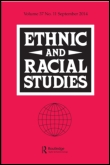
Abulof, Uriel (2014). National Ethics in Ethnic Conflict: The Zionist “Iron Wall” and the “Arab Question”. Ethnic and Racial Studies 37 (14):2653-69.
Ethnic conflicts often involve a delegitimation of the rival ethnic community and its national aspirations. This, I suggest, can impel the community in question to legitimate its politics through ethical principles, which in turn may affect its policies. An abiding non-recognition of the ethnonational movement from within and without may engender ethical transformation and policy reorientation. Empirically, I trace the emergence, evolvement and possible effects of the Zionist ‘Iron Wall’ ethics. The original concept comprised the horizon of Arab recognition and peace, the strategy of containment, and the moral pillars of reciprocal self-determination and the lesser injustice. Iron Wall ethics, while constantly challenged, predominated much of Zionism's history, culminating in the 1990s peace process. However, in the wake of the Second Palestinian Intifada, a prevailing assertion that the Arabs would never accept Israel's right to exist has undermined the Iron Wall's original ideals, rewriting its strategic prescription.
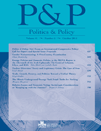
Abulof, Uriel (2013). Nuclear Diversion Theory and Legitimacy Crisis: The Case of Iran. Politics & Policy 41 (5): 690-722.
Can an insecure regime use nuclear diversion to address its eroding domestic legitimacy? This article argues that facing a domestic legitimacy crisis, a regime might opt to “rally round the nuclear flag” to survive. Theoretically, I argue that, compared with conventional diversion, nuclear diversion is less susceptible to structural restraints, has a unique symbolic value that could aid in coping with an acute legitimacy crisis, and spans a host of diversionary strategies as it ascends the escalation ladder, both before and after acquiring the bomb. The theory is examined empirically via Iranian nuclear policy. I argue that facing a deepening legitimacy crisis, the Iranian regime, throughout Ahmadinejad's tenure, has been increasingly drawing on nuclear diversion to boost public support and that, if the legitimacy crisis lingers, the regime may opt to further employ diversionary nuclear strategies, most of which require a viable “nuclear latency,” rather than actual military nuclear capability.

Abulof, Uriel (2009). Small Peoples: The Existential Uncertainty of Ethnonational Communities. International Studies Quarterly 53 (1):227-248.
This exploratory paper attempts to extend the boundaries of research on the “smallness” of polities. It introduces the concept of “small peoples,” a term coined by Czech author Milan Kundera to denote communities that lack a “sense of an eternal past and future.” The paper posits “small peoples” as ethnic communities characterized by prolonged and deep-rooted uncertainty regarding their own existence. I argue that in modern times, “small peoples” doubt the validity of their past-based ethnic identity and the viability of their future-driven national polity. Empirically, I analyze two distinct “small peoples”—Israeli Jews and French Canadians (Québécois)—and argue that while the former have been more concerned with the future survival of their polity, the latter have been more concerned with insecurity about their identity. The paper suggests that a focus on communities and their intersubjective processes can enrich the study of states and their objective state.

Abulof, Uriel (2008). Back to the Future: A Comparative Ethical Look at Israeli Arab Future Vision Documents. Israel Studies Review 23 (2):29-54.
Israeli Arabs' "future vision" documents are an ethical–political manifesto, contextualized in academic discourse and informed by socio-historical parallels. Hence, this article examines their political ethics in a comparative perspective, by referencing the case of Israeli Arabs along with two other distinct intra-state conflicts: the strife between Anglophones and Francophones in Canada and the struggle between Macedonians and Albanians in Macedonia. These cases illuminate two main ethical–political alternatives to the present pattern of relations between Jews and Arabs in Israel. Although the Canadian case indicates a renunciation of ethno-nationalism in favor of civic and linguistic patriotism, the Macedonian case presents an attempt to reconcile ethno-national affiliation with democratic principles. Projecting the ethical discussion of the Canadian and Macedonian cases onto Israel, I contend that normative acceptance of the mutual and dual right of self-determination, regarding both the individual's collective identity and the collective's polity, is a precondition for reconciliation between Jews and Arabs.
![Israeli-Jewish Existential Uncertainty [Hebrew]. Tchelet 27:74-98 Israeli-Jewish Existential Uncertainty [Hebrew]. Tchelet 27:74-98](images/azure.jpg)
Abulof, Uriel (2006). Israeli-Jewish Existential Uncertainty [Hebrew]. Tchelet 27:74-98.